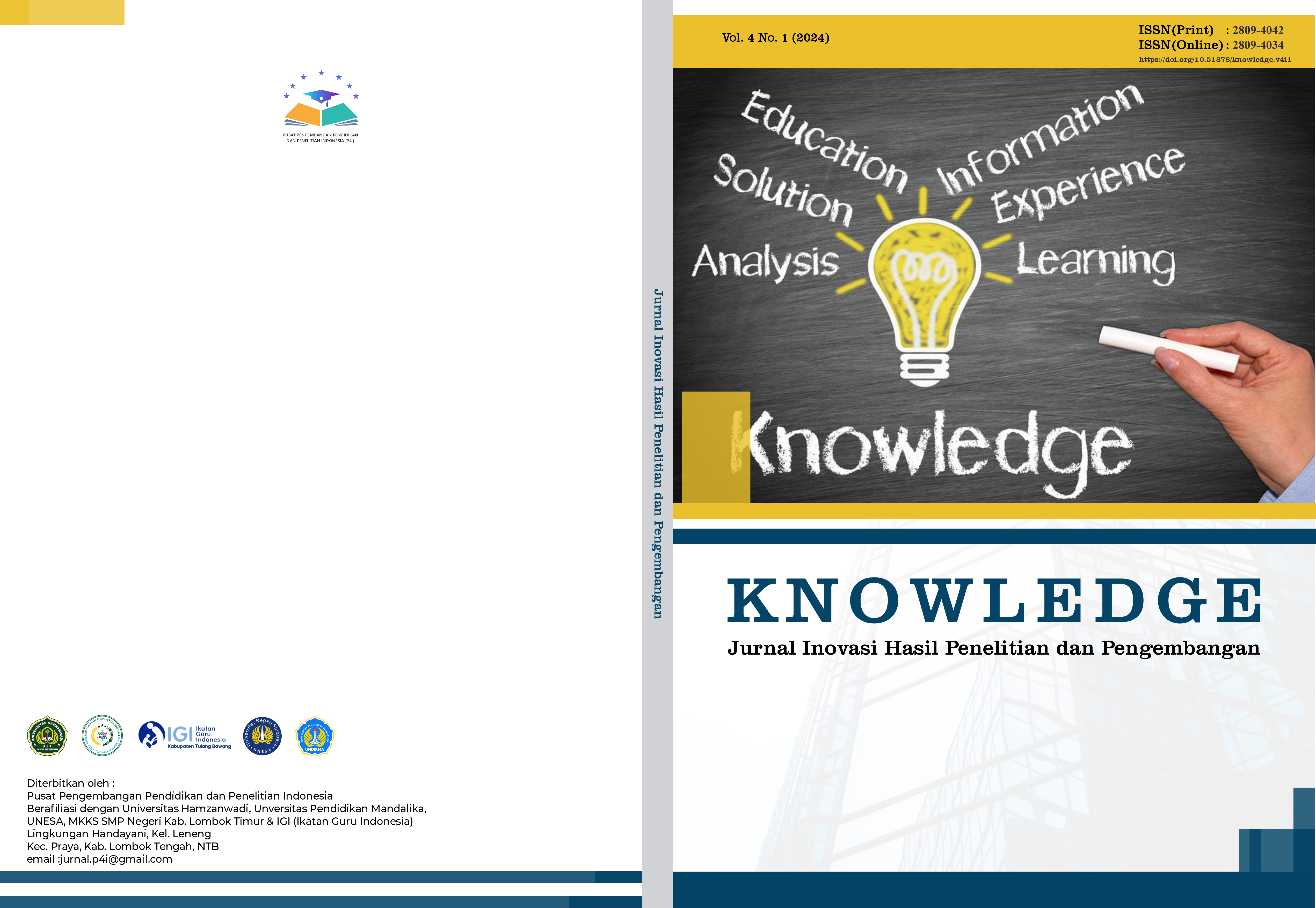TERAPI PERILAKU KOGNITIF PADA GANGGUAN OBSESIF-KOMPULSIF BERKOMORBID DENGAN GANGGUAN DEPRESIF BERULANG: LAPORAN KASUS
DOI:
https://doi.org/10.51878/knowledge.v4i1.3260Keywords:
Gangguan Obsesif-Kompulsif, Gangguan Depresif Berulang, Terapi Perilaku Kognitif, Paparan dan Respon Pencegahan, KomorbiditasAbstract
Obsessive-Compulsive Disorder (OCD) comorbid with Recurrent Depressive Disorder is a complex clinical combination and often worsens the patient's psychological well-being. Cognitive Behavioral Therapy (CBT) has been shown to be effective in treating OCD, but its application to patients with comorbid Recurrent Depressive Disorder requires a more integrated approach. This study explores the effectiveness of CBT in treating cases of OCD comorbid with Recurrent Depressive Disorder, with a focus on interventions specifically designed to address both disorders simultaneously. Through a CBT approach that includes techniques such as exposure and response prevention, as well as cognitive management of negative thought patterns associated with depression, this therapy aims to significantly reduce the symptoms of OCD and Recurrent Depressive Disorder. The results of this case report show that CBT is not only effective in reducing obsessive-compulsive symptoms, but also improves mood and depressive affect in patients. This case report also highlights the importance of adapting CBT techniques to address the dynamics of these dual disorders, as well as the need for an approach that is holistic and focuses on the integration of cognitive and behavioral techniques for optimal outcomes. These findings support the use of CBT as a therapeutic method in the management of patients with comorbid OCD and Recurrent Depressive Disorder, and pave the way for further management of similar cases in the development of more effective therapeutic strategies.
ABSTRAK
Gangguan Obsesif-Kompulsif (OCD) berkomorbid dengan Gangguan Depresif Berulang merupakan kombinasi klinis yang kompleks dan sering kali memperburuk kesejahteraan psikologis pasien. Terapi Perilaku Kognitif (CBT) telah terbukti efektif dalam mengatasi OCD, tetapi penerapannya pada pasien dengan komorbiditas Gangguan Depresif Berulang memerlukan pendekatan yang lebih terintegrasi. Studi ini mengeksplorasi efektivitas CBT dalam menangani kasus OCD yang berkomorbid dengan Gangguan Depresif Berulang, dengan fokus pada intervensi yang dirancang khusus untuk mengatasi kedua gangguan secara bersamaan. Melalui pendekatan CBT yang mencakup teknik seperti paparan dan respons pencegahan, serta pengelolaan kognitif terhadap pola pikir negatif yang terkait dengan depresi, terapi ini bertujuan untuk mengurangi gejala OCD dan Gangguan Depresif Berulang secara signifikan. Hasil laporan kasus ini menunjukkan bahwa CBT tidak hanya efektif dalam mengurangi gejala obsesif-kompulsif, tetapi juga memperbaiki mood dan afek depresif pada pasien. Laporan kasus ini juga menyoroti pentingnya penyesuaian teknik CBT untuk menangani dinamika gangguan ganda ini, serta perlunya pendekatan yang holistik dan berfokus pada integrasi teknik kognitif dan perilaku untuk hasil yang optimal. Temuan ini mendukung penggunaan CBT sebagai metode terapi dalam manajemen pasien dengan OCD dan Gangguan Depresif Berulang yang berkomorbid, serta membuka jalan bagi penatalaksaan kasus serupa lebih lanjut dalam pengembangan strategi terapeutik yang lebih efektif.
Downloads
References
Badan Pusat Statistik (BPS). (2023). Statistik kesehatan mental di Indonesia. Jakarta: BPS.
Beck, A. T., & Alford, B. A. (2009). Depression: Causes and treatment. University of Pennsylvania Press.
Clark, D. A., & Beck, A. T. (2012). Cognitive therapy of anxiety disorders: Science and practice. Guilford Press.
González-González, J. S., Ruiz-González, R., & García-Palacios, A. (2020). Effectiveness of fluoxetine in the treatment of obsessive-compulsive disorder: A systematic review. Journal of Clinical Psychiatry, 81(5), 19-25.
Kementerian Kesehatan Republik Indonesia. (2023). Laporan tahunan kesehatan mental. Jakarta: Kementerian Kesehatan.
Muench, J., & Hamer, A. M. (2010). Aripiprazole: A review of its use in the treatment of obsessive-compulsive disorder. Clinical Therapeutics, 32(11), 2014-2033.
Sadock, B. J., & Sadock, V. A. (2017). Kaplan & Sadock's comprehensive textbook of psychiatry (10th ed., pp. 4299-4356).
Storch, E. A., Mendez, M. A., & Arnold, E. B. (2007). The relationship between obsessive-compulsive disorder and depression: Implications for treatment. Journal of Anxiety Disorders, 21(8), 1065-1074.
Rusdi, M. (2003). Buku diagnosis gangguan jiwa, PPDGJ III. Jakarta: Bagian Ilmu Kedokteran Jiwa FK Unika Atmajaya.
World Health Organization (WHO). (2021). Mental disorders. Retrieved from https://www.who.int/mental_health/management/en/

















